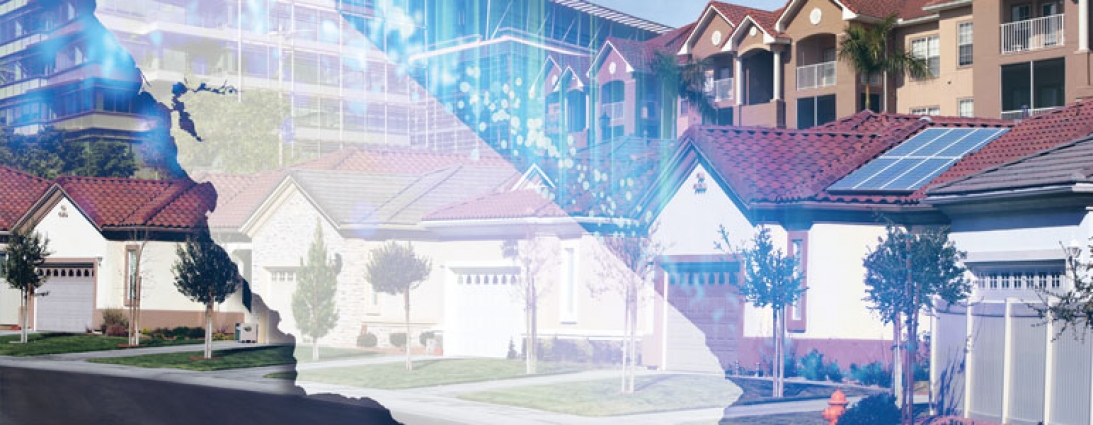

The Center for Sustainable Energy has published a report that outlines how cities and counties in California can play a key role in achieving state energy efficiency goals and greenhouse gas emission reductions by working toward zero net energy (ZNE) buildings and homes.
The report, prepared for the San Diego Regional Energy Partnership, aims to help local jurisdictions develop policies to support the market for ZNE buildings in anticipation of state building codes that will make them mandatory in coming decades. Although various definitions of ZNE buildings exist, it generally means a building or home that produces as much energy as it consumes over the course of a year. This is achieved primarily through constructing highly energy-efficient buildings that are augmented with solar energy panels or other on-site renewable energy technologies.
California’s building energy efficiency standards (Title 24, Part 6) are updated every three years and are set to require new home construction to be ZNE by 2020 and new commercial buildings to be ZNE by 2030. While state regulatory agencies and the major utilities are leading ZNE efforts, local jurisdictions have the option to enact special energy ordinances or “reach codes” that are stricter than state standards.
What jurisdictions can do
Jurisdictions in the San Diego region and across California have many policies in place to promote energy efficiency and renewable energy. While many of these policies were not designed specifically with ZNE in mind, they can be adapted to form the building blocks of a comprehensive ZNE approach.
Many have created climate action plans (CAPs), enacted energy roadmaps and authorized financing mechanisms such as property assessed clean energy (PACE) programs.
So far, five jurisdictions have enacted reach codes that exceed the 2013 CalGreen standards: Los Angeles, Glendale, Lancaster and the city and county of San Francisco. Lancaster has a goal of becoming the first ZNE city in the world with a number of innovative policies and programs to help achieve their mission.
The report contains eight key recommendations that local jurisdictions can implement to reach ZNE. Each recommendation is paired with examples of jurisdictions already implementing similar policies, along with resources to learn more.
- Officially adopt ZNE goals: Align local ZNE strategies and policies with state goals through CAPs with direct connections between policies/standards and greenhouse gas reduction goals.
- Create a ZNE task force: Enlist relevant public department staff and stakeholders in the private sector to coordinate efforts.
- Enact “reach codes”: Establish local ordinances that reach beyond current state building energy efficiency standards.
- Transform municipal buildings into ZNE buildings: Enact policies that require renovation projects to address energy efficiency and renewable energy opportunities in existing public buildings.
- Streamline permitting and interconnection processes: Make the permitting process for energy-related upgrades such as HVAC and solar electric installations more efficient.
- Create or enhance incentives for projects exceeding code: Consider expedited or reduced-fee permitting, matching utility rebate offerings or a public recognition program.
- Enact PACE programs: Establish property assessed clean energy (PACE) financing programs.
- Provide ZNE education and outreach: Train industry stakeholders, from real estate agents to contractors, on strategies and technologies to meet and exceed energy efficiency codes.
The report also discusses opportunities and complexities posed by the growing deployment of electric vehicle charging and energy storage technologies.
Read the report at Zero Net Energy Buildings: How California’s Local Jurisdictions Can Lead the Way. Local government officials also can use an interactive roadmap tool that provides customized policy recommendations and resources.
ZNE workshop in San Diego
CSE will be presenting the report and roadmap at the New Buildings Institute’s ZNE Workshop for Local Governments on November 3 in San Diego.
Read a related CSE Energy Loop blog
Achieving Zero Net Energy Buildings by Jack Clark, CSE director of programs
